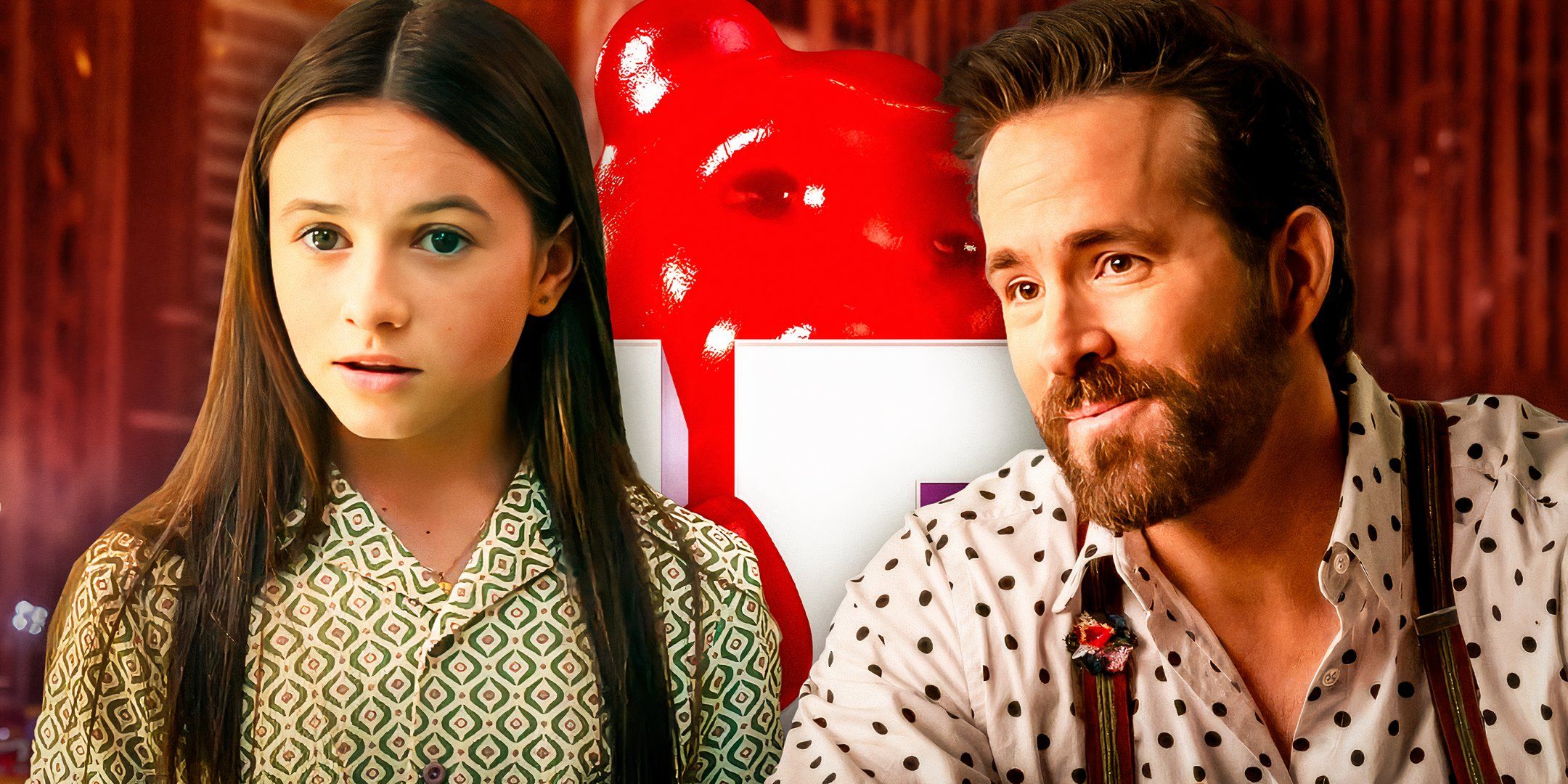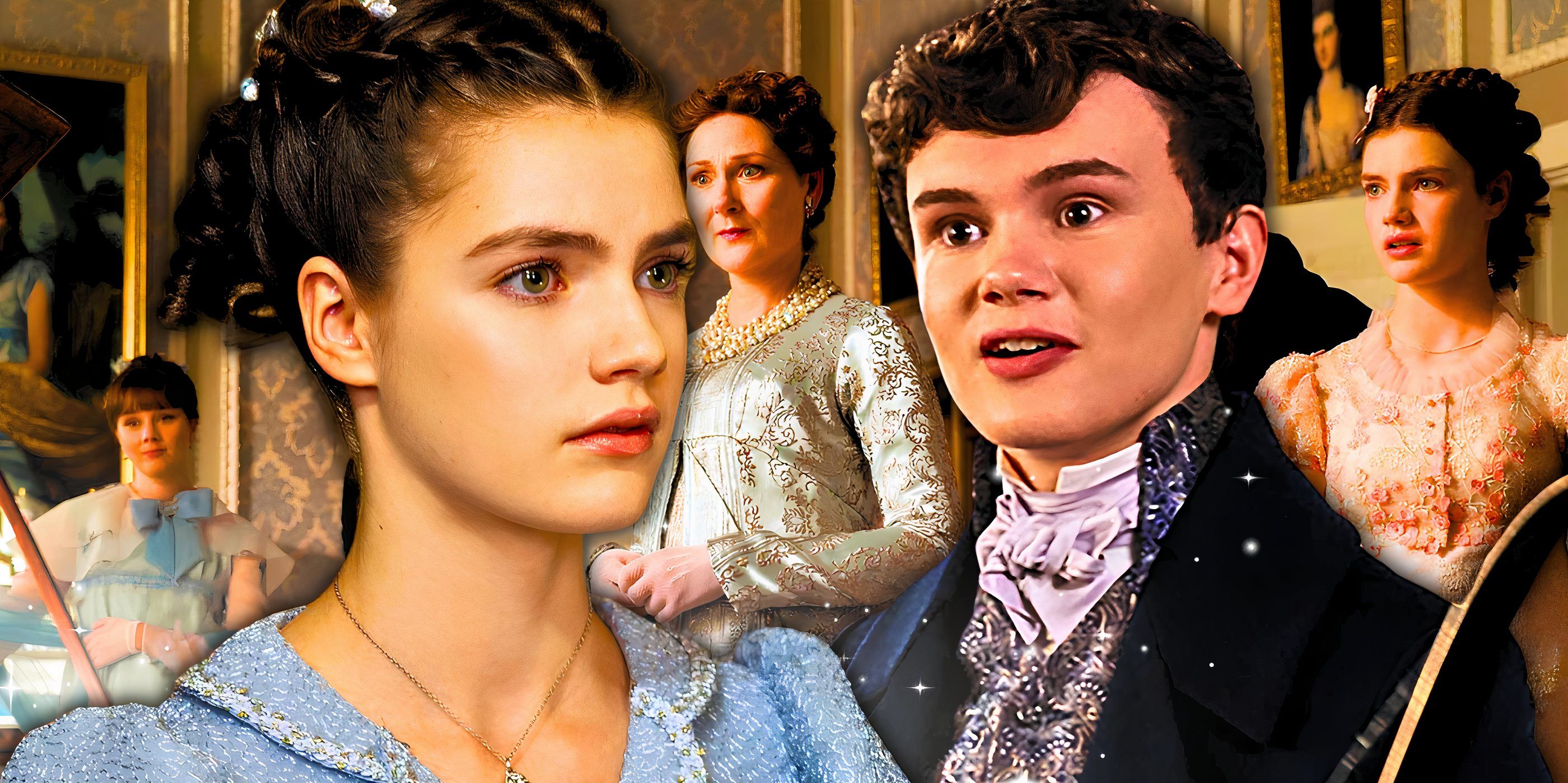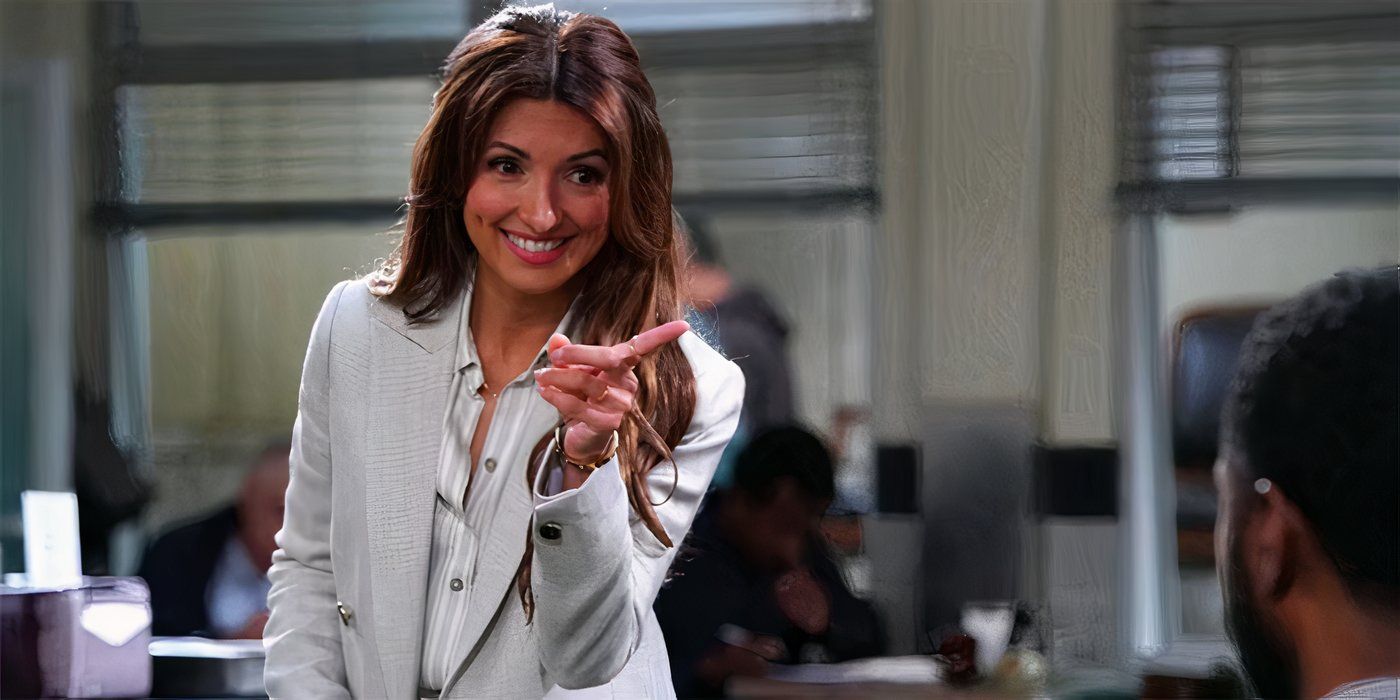Brooklyn Nine-Nine is a popular sitcom centered around NYPD detectives that just closed off its sixth season in 2019. While this show definitely relies on a lot of dry, slap-stick humor from Jake Peralta (Andy Samberg) and his crew, this sitcom is surprisingly genius with its real, serious underlying messages about society.
In fact, most of the jokes actually rely on something that is inherently flawed with the police institution or the societal system as a whole. Don’t believe us? Here are 10 episodes of the hit show that actual tackle deep, systemic issues.
“The Ebony Falcon” (Season 1, Episode 14)
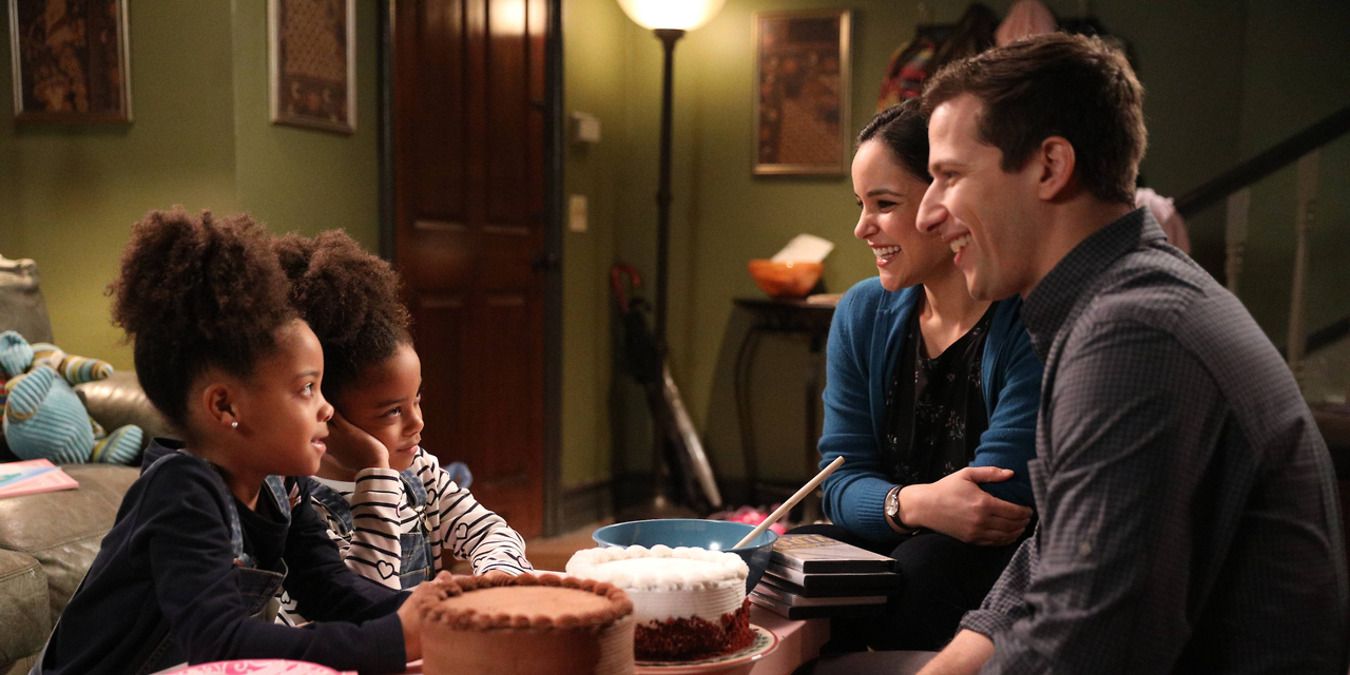
In this episode, Terry is contemplating going back into the workforce after being on desk duty for quite a while (so he could help raise his newborn girls). However, Jake and Charles begin to have mixed feelings once they meet the girls, as they realize that they would be fatherless if something were to happen to Terry in the field.
While Charles and Jake make everything pretty hilarious, this underlying issue is definitely one faced by every officer, and we’re thanking this show for bringing it to light.
“Captain Peralta” (Season 2, Episode 18)
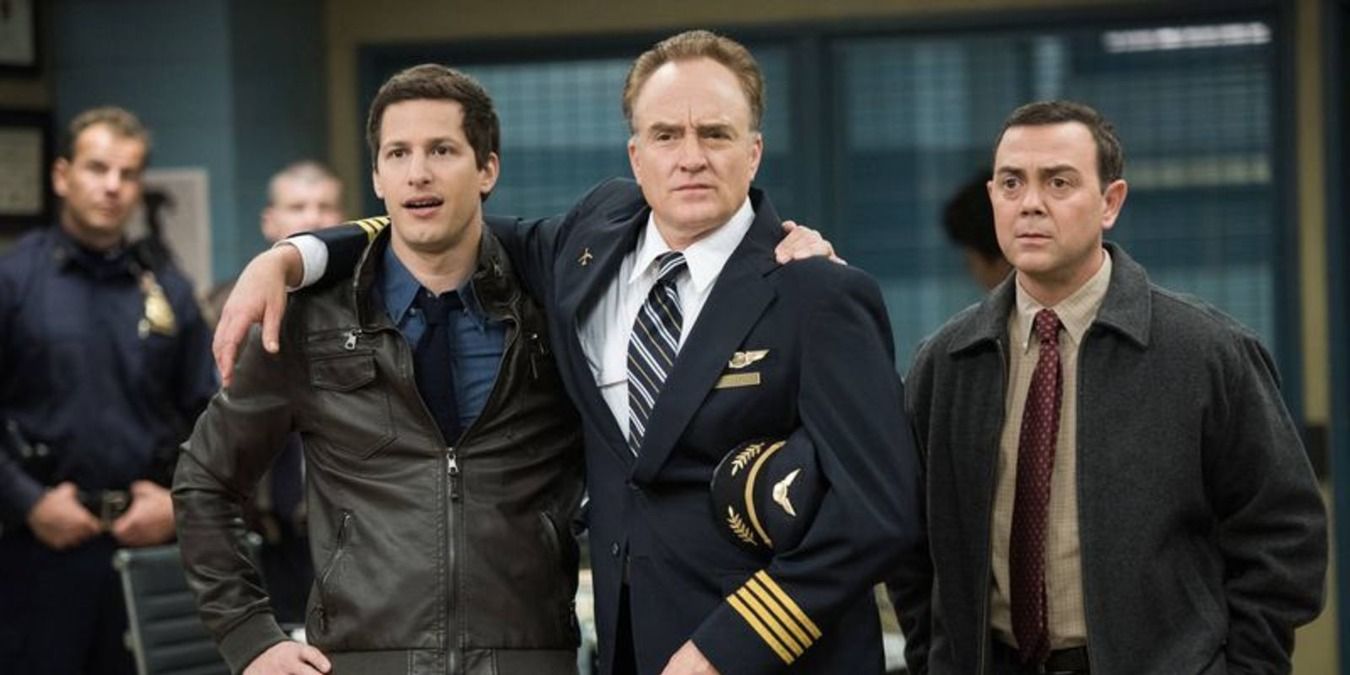
When Jake’s absent father, Roger, actually comes to town to visit him, Jake is over the moon with happiness. However, Charles is skeptical of Roger’s intentions and is worried that he will hurt Jake all over again.
Jake often uses his absent father as the punchline of many of his jokes, but underneath his witty humor is a pretty devastating story that way too many North Americans face. Jake’s missing father did quite the number on him, and we’re grateful he’s showing the world how to overcome it.
“The Oolong Slayer” (Season 3, Episode 4)
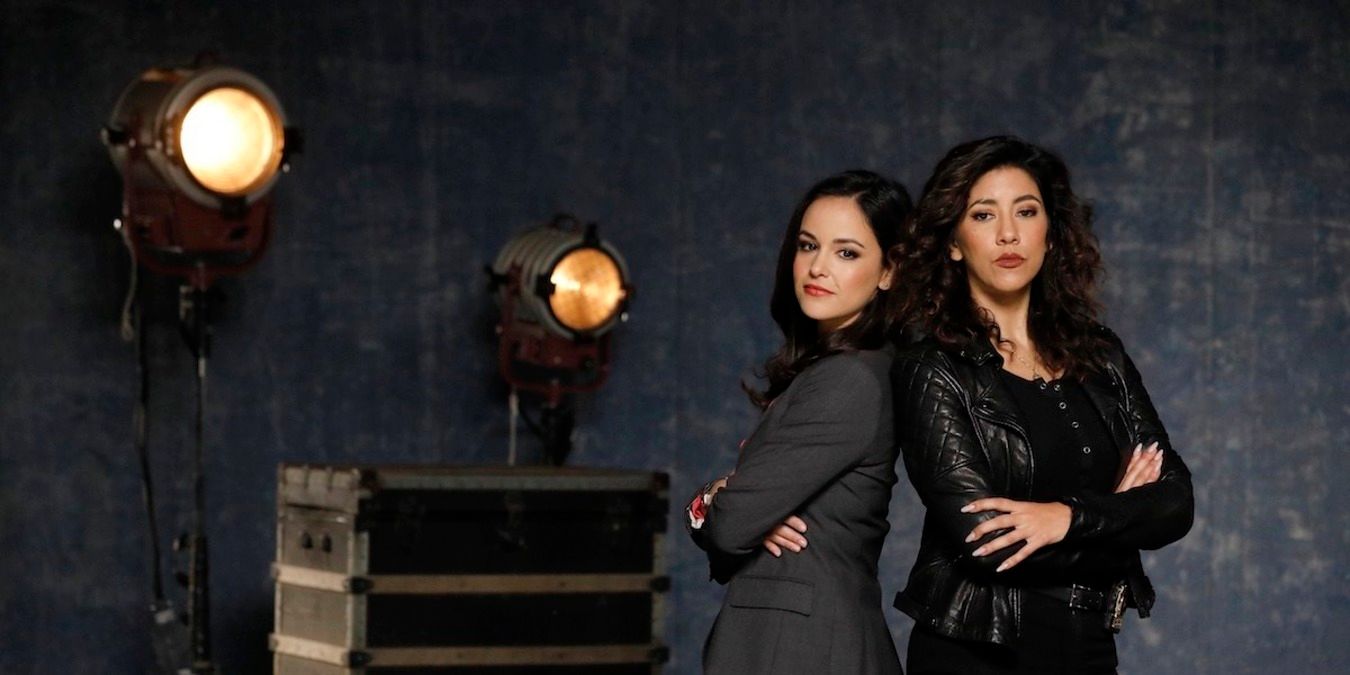
Brooklyn Nine-Nine is absolutely stellar for having strong, female leads that are super badass, intelligent, and are in no way secondary to their male counterparts. In this episode, the infamous Vulture comes to the 99. When Rosa and Amy are searching for new cases, the Vulture assigns the two women to plan his birthday party.
Unimpressed by the gendered idea that women are good party planners, Rosa and Amy work to make the party a total embarrassment for the Vulture. These two brilliant detectives are worth way more than that, man.
“Adrian Pimento” (Season 3, Episode 17)
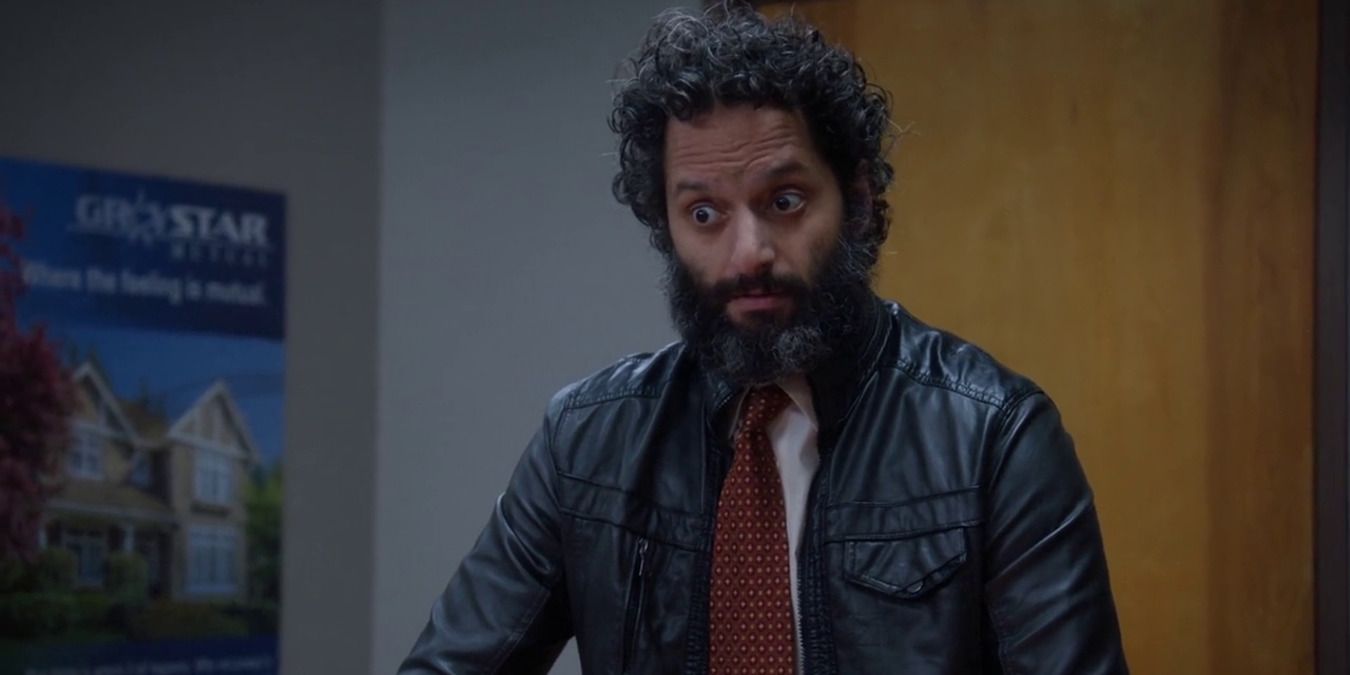
When Adrian Pimento returns to the 99 after going undercover for 12 years with a mob, it becomes pretty evident that Adrian has no social skills and suffers from severe trauma. While Adrian offers comedic relief, and almost all of his rage outbursts and cringy jokes are actually pretty funny, the underlying message is absolutely devastating.
Adrian’s entire life, from his family to his credit score, has been squashed by his lengthy undercover work. This is a pretty powerful message for all undercover officers out there and definitely needs more awareness.
“Moo Moo” (Season 4, Episode 16)
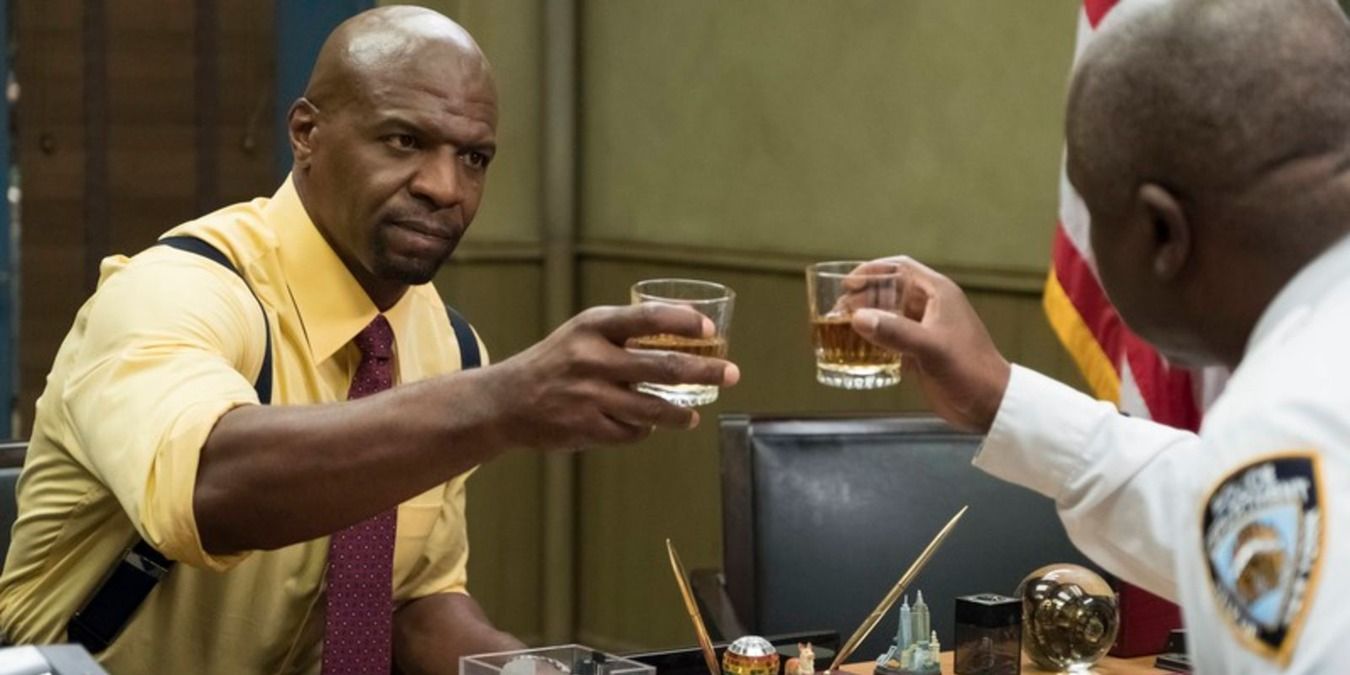
This episode is an incredible yet tragic depiction of racial profiling. When Terry is out at night (in his upper-class neighborhood) searching for his daughter’s toy, he is stopped by an officer, who thinks he’s a dangerous criminal.
Terry struggles the entire episode with having been racially profiled and how whistleblowing on the cop might hurt his own career. This is some heavy stuff about both racial profiling and the systemic bias of the police institution, and we’re applauding the writers right now for tackling those issues.
“Game Night” (Season 5, Episode 10)
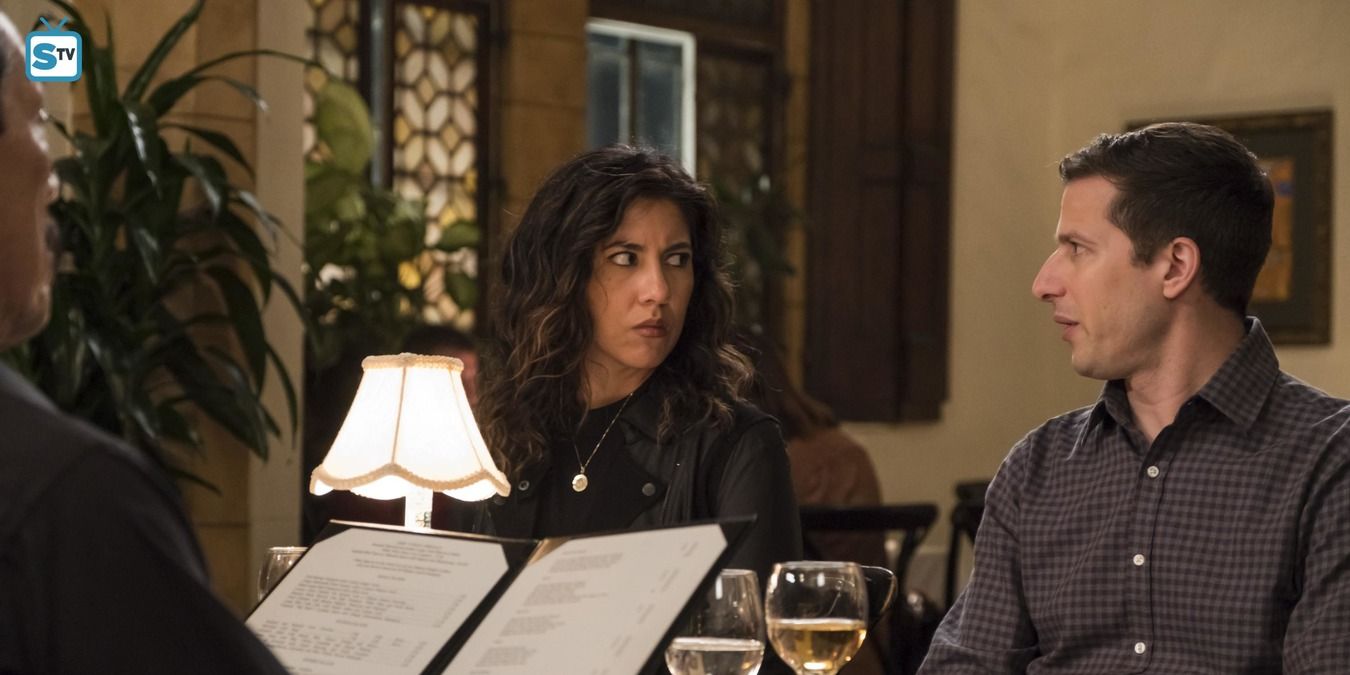
During the 5th season, it becomes clear to the squad that Rosa is actually bisexual. While she tries to hide it, the squad is incredibly supportive of her and are excited to meet any date prospects she might have. When it comes to telling her old-fashioned parents, Rosa is terrified, and both of them are disappointed in her.
Devastated that her parents are upset over her sexuality, Jake tries to console her. This is a common, and horrible, reality for many LGBTQA+ individuals out there, and we’re happy that Rosa is here to show everyone that they’re not alone. Keep waving that flag, girl.
“The Puzzle Master” (Season 5, Episode 15)
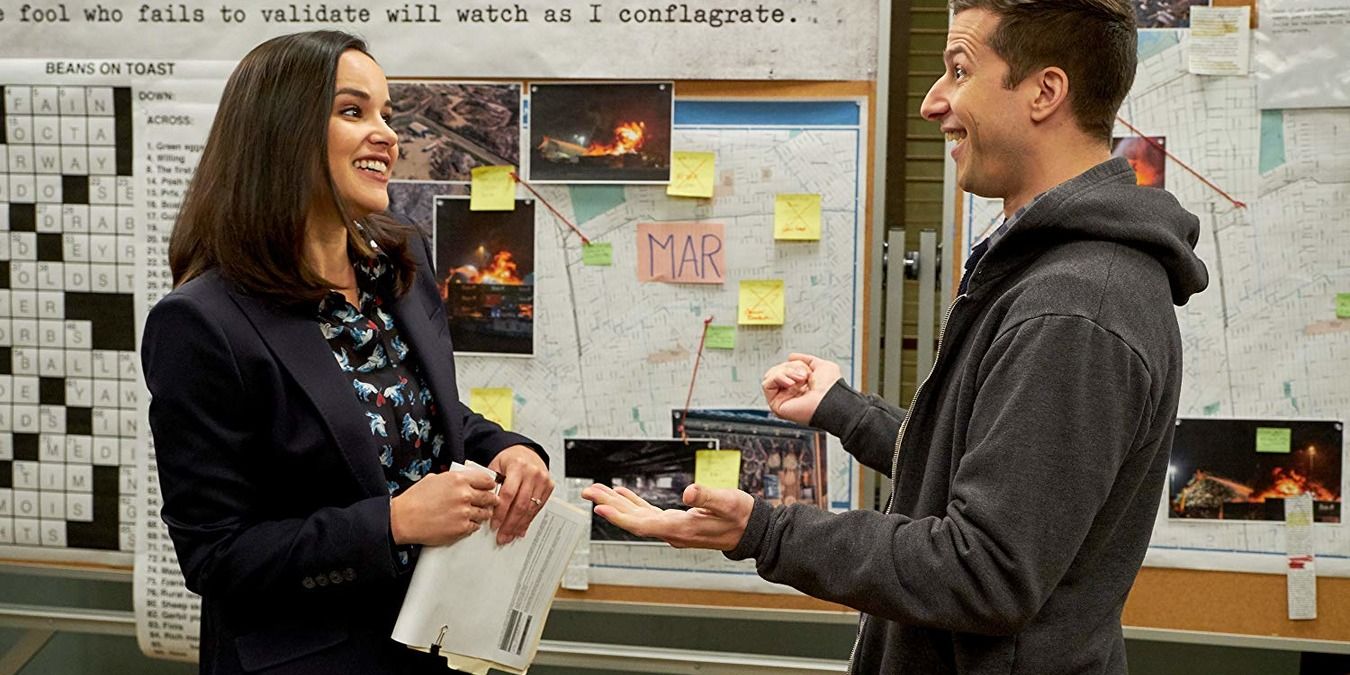
This episode’s deep issue is definitely underlying beneath everything else, but you’ll see it if you look for it. When Amy and Jake are trying to solve a case for a crossword puzzler, Amy believes that they should be thinking like a puzzler, not a cop. This is incredibly difficult for Jake, and it becomes pretty evident that Jake’s entire identity (and self-worth) comes from being a cop.
Officers are often segregated from society, and it can be pretty difficult for them to have a life outside of their career. This message should be eyeopening for all viewers, and we might want to consider how all cops feel when they’re not on the job.
“Show Me Going” (Season 5, Episode 20)
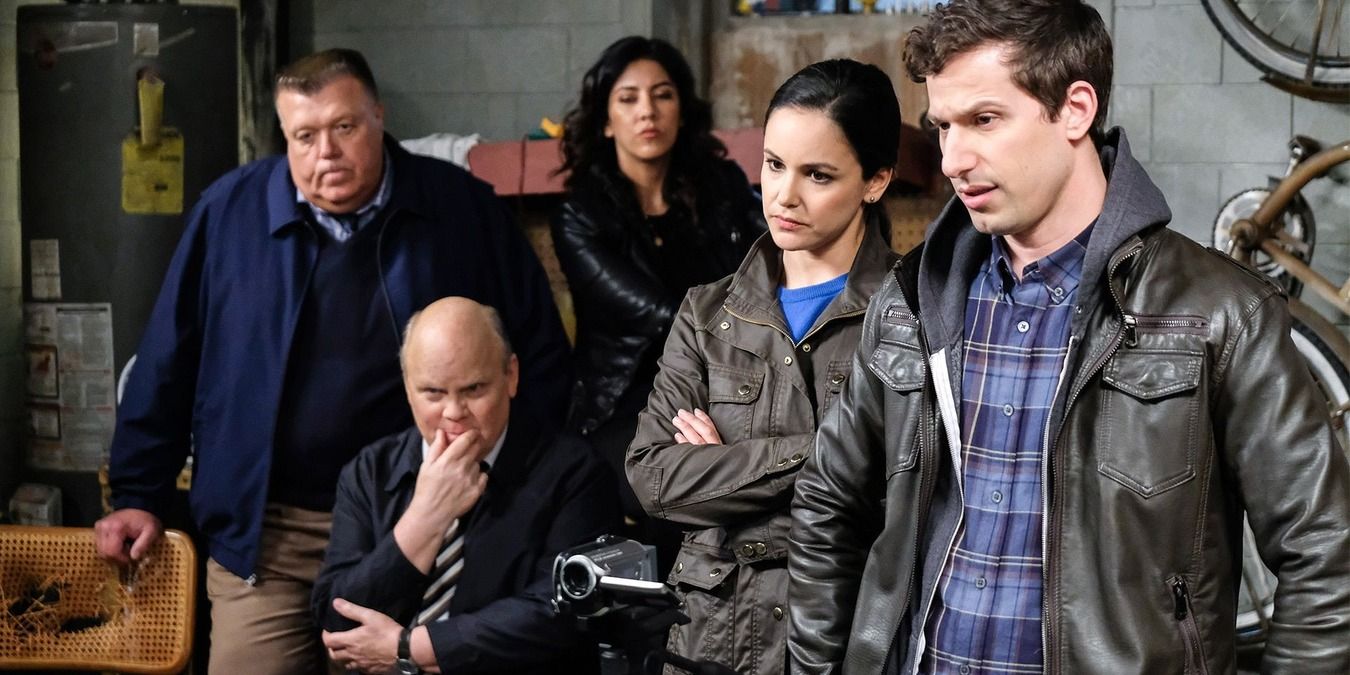
When Rosa is discovered to be on the scene with an active shooter, the entire squad becomes incredibly concerned for her safety. As they wait for updates, the squad takes on different tasks to distract them from Rosa’s situation.
While all of their escapades are comical, this episode is incredibly honest in its portrayal of the daily life of an officer. Rosa in danger is incredibly difficult for the squad to deal with. It’s their job, but they’re also a team, and it can take a huge emotional toll on each of them.
“The Crime Scene” (Season 6, Episode 6)
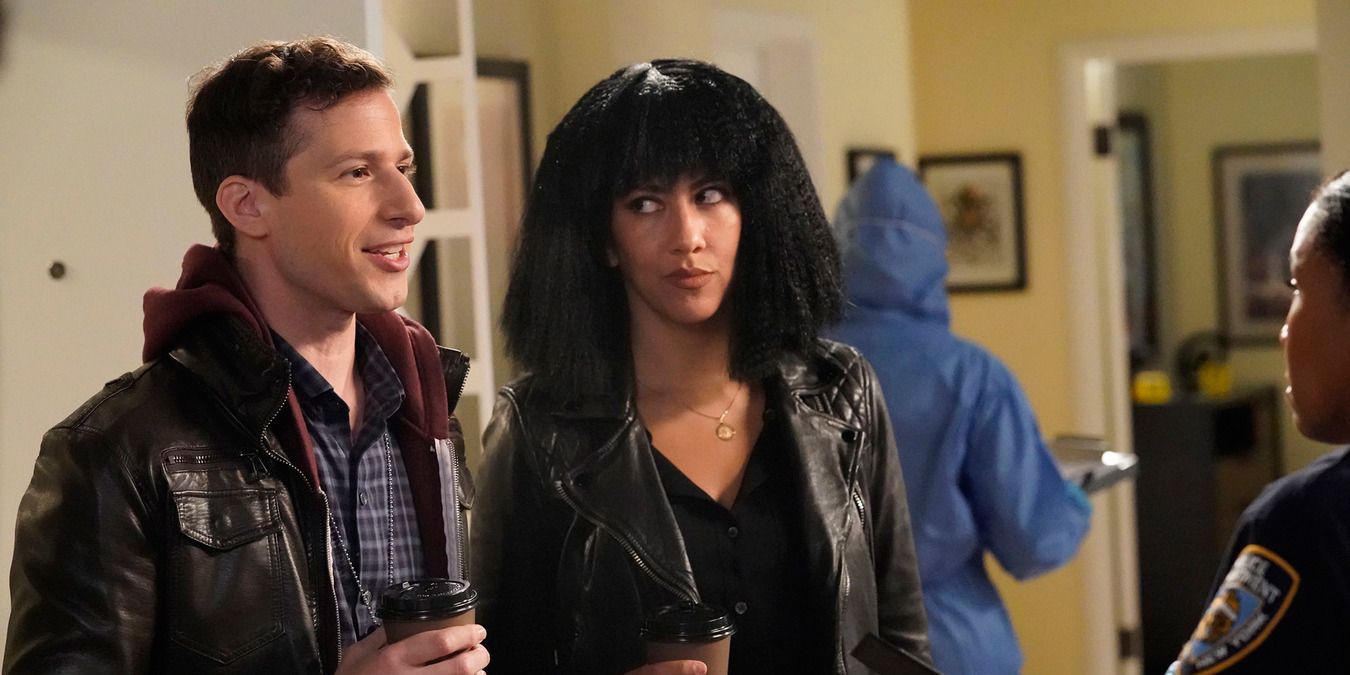
This episode is overall pretty comedic, but it does have the message of how difficult it can be for an officer to separate their job from their emotions.
When the mother of a murder victim reminds Jake of his own mom, it becomes pretty hard for Jake not to make her unrealistic promises and become obsessed with solving her son’s murder. Remember, they’re people, too.
“He Said, She Said” (Season 6, Episode 8)
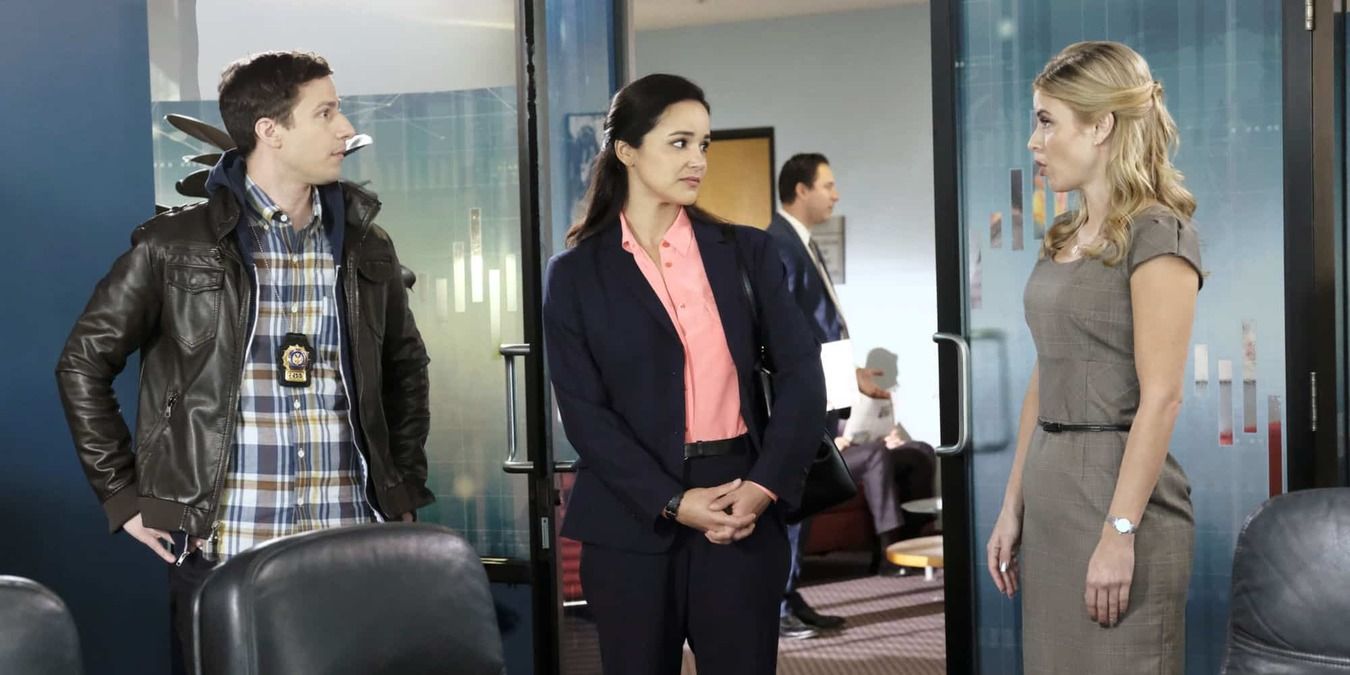
Amy and Jake take on a difficult case about a workplace sexual assault. When the woman fears her career will be in jeopardy, Amy convinces her that they will make sure she gets justice for what happened. Rosa offers the other side, claiming that this will supersede anything else about the woman and that it’s worse for the victim to become involved with the court process.
The multiple sides of this systemic issue are presented in a beautiful manner in this episode, and we’re even digging Jake’s role as the supportive (and slightly confused) man. Well played, writers, we’re loving those feminist undertones.

